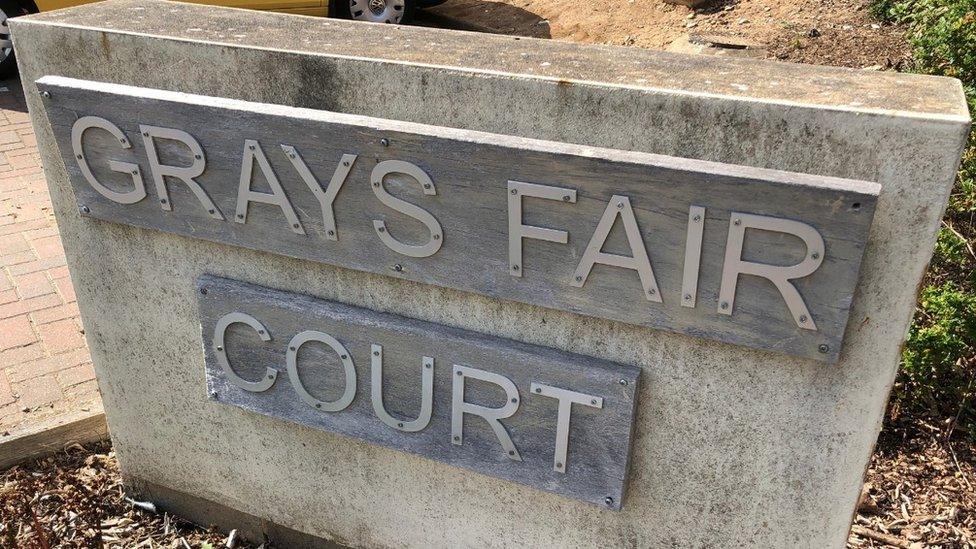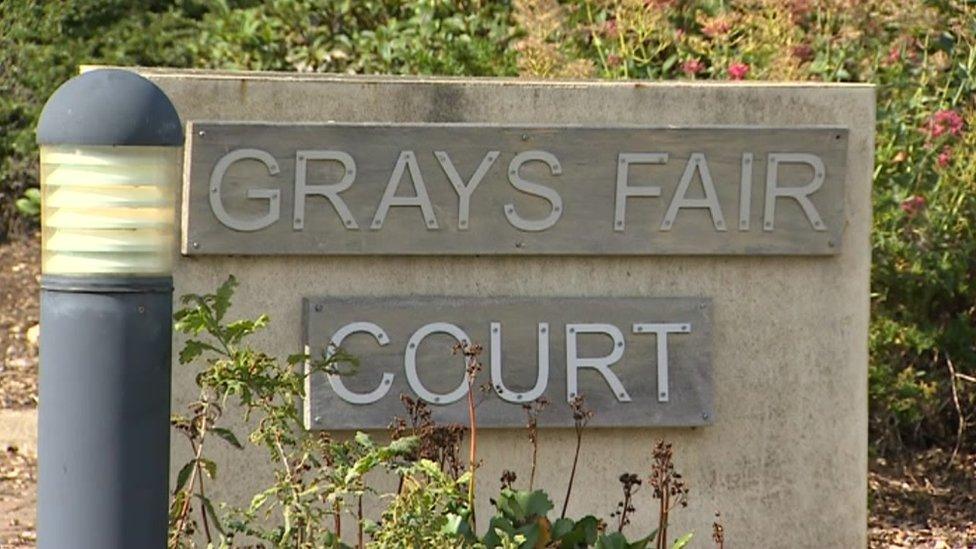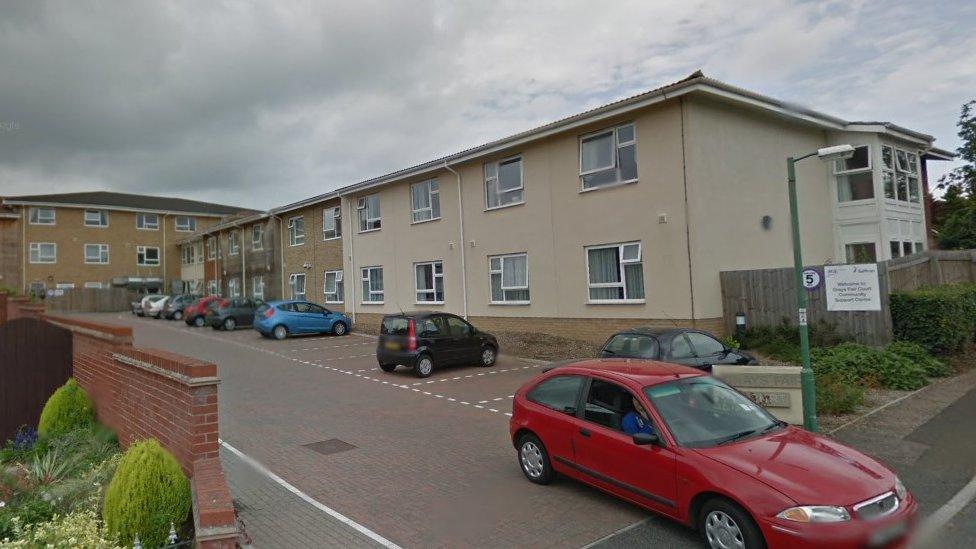Jury says Norfolk man killed wife after failed suicide pact
- Published

Rat poison was found in Mrs Virgo's room at the care home
A "loving husband" killed his wife after their rat poison suicide pact went wrong, a jury has concluded.
Michael Virgo, 81, strangled his wife, Doreen, 89 and battered her with a shower head when his plan to die using poison failed to work.
Her health had deteriorated and the pair from Buxton in Norfolk, wanted to "die together", the court heard.
Following a trial of facts, a jury at Ipswich Crown Court found Mr Virgo had killed his wife as charged.
He had previously been charged with murder but was found unfit for trial because of his dementia.
Mrs Virgo was found dead on 12 July by staff at Grays Fair Court care home in New Costessey, near Norwich.
She had been staying there following a hospital stay.
Blue stains, consistent with rat poison, were found around her mouth and in a beaker and mug in her room, the court heard.
Ian James, representing Mr Virgo said the evidence showed Mr Virgo and his wife "loved each other very much".
'I killed her'
On the night of the killing Mr Virgo was found by police in his car in Norwich, also with blue stains around his mouth.
In hospital he told doctors: "My wife was taken ill, she was getting worse and worse, so I killed her" and "I didn't want to live without her".
The prosecution said there was "no evidence of a struggle" and it was possible Mrs Virgo had been "compliant".
Mrs Virgo, who had multiple sclerosis and was bed-bound, had previously told care home staff that her husband was the "only reason I am still here".
In a letter to his cousin following his arrest, Mr Virgo said: "Doreen and I had a wonderful, loving life and I am very sad to say that Doreen became so very unwell, we decided together to end our lives."
He said it was his "duty to assist her in her death" and that he missed her "more than anything in life".
He also told a psychiatrist that his wife had been "pleading" for him to kill her.
Mrs Virgo's cause of death was recorded as compression of the neck.
A jury took less than 30 minutes to reach a unanimous verdict that Mr Virgo did the act alleged.
He will be made subject to a hospital order at a hearing on 14 February, pending medical reports.
Det Insp Lewis Craske, from the Norfolk and Suffolk Major Investigation Team, said it had been a "challenging enquiry" but the evidence against Mr Virgo was "overwhelming".

What is a trial of the facts?
If a court determines that a person is unfit to stand trial, then criminal proceedings cannot proceed.
Prosecutors, however, have the option to have the matter heard as a "trial of the facts" in a public hearing to determine whether an accused committed the acts alleged.
It cannot result in a conviction, but if the court is not satisfied that the accused committed the acts alleged, then they will be acquitted.
The jury is not required to return a verdict of guilty or not guilty. Instead, they are asked to decide whether or not the accused committed the offence with which they were charged.
A number of different medical orders are available to the judge in the place of sentencing, as set out by legislation. These are mainly designed to protect the public.
- Published16 January 2020

- Published15 July 2019
